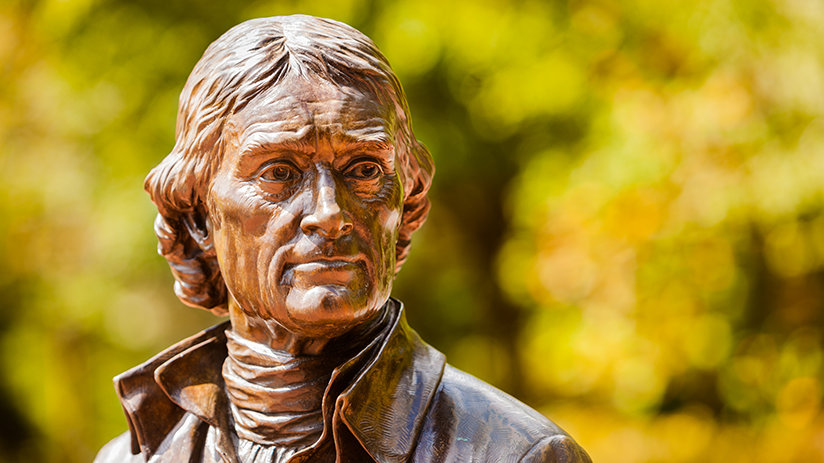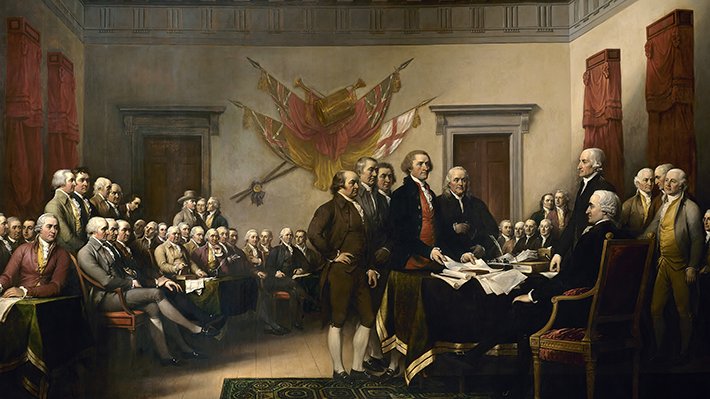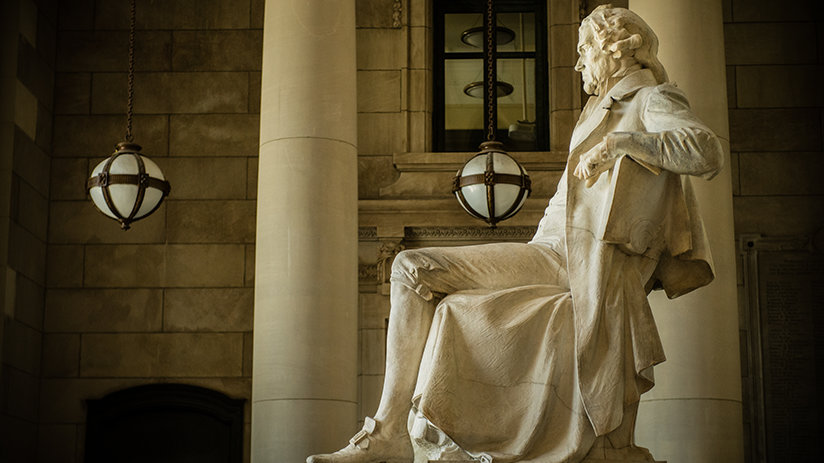
-
HOME
-
WHAT IS STANDOur Mission Our Values Our Help Contact
-
WHAT WE FIGHT FORReligious Freedom Religious Literacy Equality & Human Rights Inclusion & Respect Free Speech Responsible Journalism Corporate Accountability
-
RESOURCESExpert Studies Landmark Decisions White Papers FAQs David Miscavige Religious Freedom Resource Center Freedom of Religion & Human Rights Topic Index Priest-Penitent Privilege Islamophobia
-
HATE MONITORBiased Media Propagandists Hatemongers False Experts Hate Monitor Blog
-
NEWSROOMNews Media Watch Videos Blog
-
TAKE ACTIONCombat Hate & Discrimination Champion Freedom of Religion Demand Accountability
Humanity vs. a Higher Power and the Arizona Invocation
An atheist member of the Arizona legislature caused a small stir recently when she offered up a humanist invocation calling on her fellow representatives to “remember the humanity that resides with each and every person here, and each and every person in the city, and in all people in the nation and world as a whole.” Conservative Christians responded critically to the absence of any reference to God with one legislator offering up a Christian prayer as an alternative. The Speaker of the Arizona House of Representatives stated that the humanist invocation was “out of line,” citing a prior memo requiring that invocations must mention a “higher power.” Others rushed to her defense. The humanist representative, Athena Salman, stated that she had followed the memo because “the goodness of humanity is a higher power.”
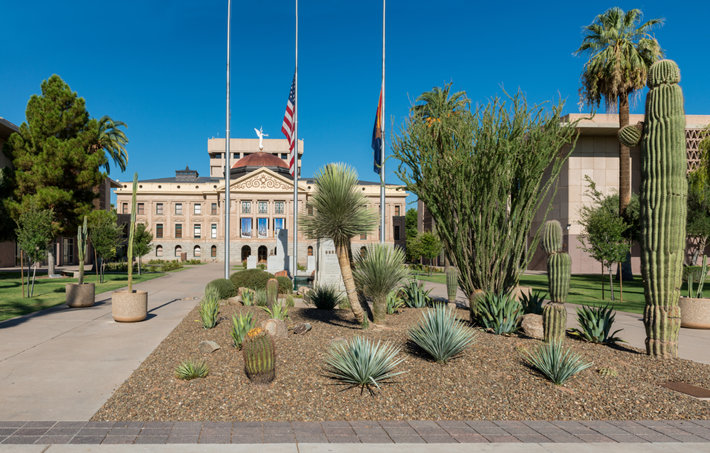
If you think this is simply a “believers” vs. “nonbelievers” confrontation, think again. Muslims, who take a back seat to no one when it comes to affirming a belief in God, supported Salman, as did some Christians. “As a religious minority, I want to say how meaningful it is for me when someone like Representative Salman shares a secular prayer on the House floor,” a Muslim said. And while most Christians believe in a personal God who responds to prayers, multiple surveys show that many do not.
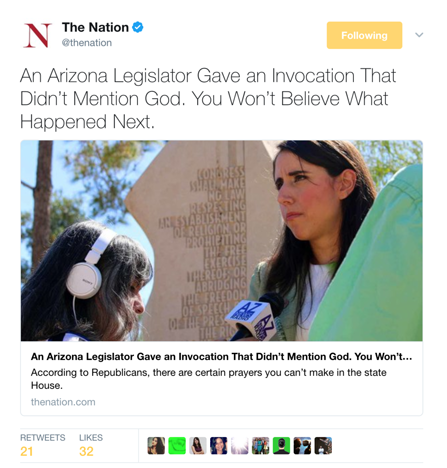
There are similar mixed messages on the “nonreligious” side. For example, 68 percent of people who classify themselves as “nones,” i.e., not a member of any church, say they believe in God, per a recent survey. A quick internet search showed that many humanist sites deny that there is any such thing as a higher power. And while atheists have in common a disbelief in any deity, some (although a minority) believe in a human soul.
Maybe we could make it easier on ourselves by dropping legislative and government invocations altogether, but they have a time-honored place in American culture and have been upheld as a ceremonial function by the Supreme Court, whose own sessions begin with the phrase “God save the United States and this Honorable Court.” So, invocations seem here to stay, in which case they have to reflect the cacophony of opinions of the legislators and the people who elect them.
That is supposed to be the point in this essay or op-ed piece or blog post where the writer reveals the magic solution. But I don’t have anything to offer along those lines. The “solution” of the past, unfortunately still prevalent in many parts of the world today, is anything but magical: give one opinion or a narrow range of views the sanction of the state and ruthlessly suppress all others. Fortunately, the United States and many other countries have moved beyond that point, for the most part.
For our entire national existence, religious and other minorities have had to fight strenuously for the rights they were supposedly already guaranteed.
But, instead of a magic answer, maybe I can at least give a little perspective. Look at how much work it took to arrive where we are. In the Colonial period, despite that over half the Colonies were founded by religious dissidents escaping persecution in the Old World, alleged “witches” were hanged. Quakers and early Baptists were sometimes hanged, whipped, jailed or exiled for not conforming to the new orthodoxy. It took the entire span of the Colonial period—almost two centuries—before the new nation was willing to make religious freedom part of the Constitution. And even then it was roughly 50 years after independence before Jews could hold public office in Maryland and a few years later that Massachusetts ceased to officially recognize only one branch of Christianity, to cite just two of many examples of religions being less than free. For our entire national existence, religious and other minorities have had to fight strenuously for the rights they were supposedly already guaranteed.
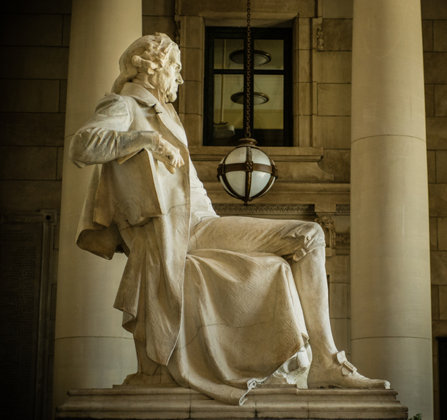
A few years before the U.S. Constitution was adopted, Thomas Jefferson wrote, “it does me no injury for my neighbor to say that there are twenty gods, or no god. It neither picks my pocket nor breaks my leg.” Jefferson is often looked to as the guiding spirit of a nation devoted to the free expression of ideas, that rejects any official religious or other orthodoxy. But his statement was controversial at the time and would be with many today. Still, it didn’t prevent him from twice being elected President.
My point is that the squabble in Arizona is nothing new. The other day I read that in Indonesia a Christian politician was given two years in jail for stating that the Koran allows Muslims to vote for a non-Muslim. So maybe we should take a moment to bask in our symphony of dissonance, and give thanks to those who over the centuries fought so that we could hear it at all.






